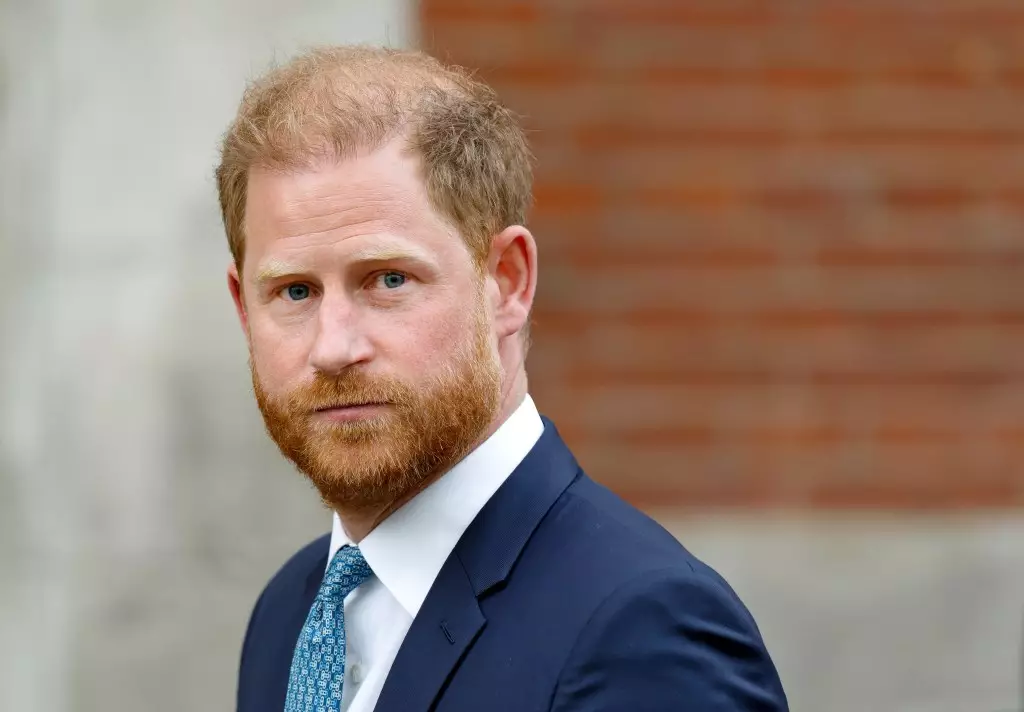Amidst the whirlwind of public scrutiny and personal turmoil, Prince Harry finds himself once again at the center of media headlines. Just a week after suffering a legal setback in the UK High Court regarding the funding of his security, the Duke of Sussex’s latest misadventure—a series of awkwardly misguided attempts to locate a friend—has become fodder for tabloids. In a country where royal affairs are dissected with surgical precision, this incident highlights not only Harry’s vulnerabilities but also the relentless nature of public interest surrounding him.
His encounter, captured through doorbell cameras, shows a dapper Harry seemingly unaware of his surroundings as he knocks on several doors in a bid to find the right home. This comic image contrasted sharply with his recent assertion of feeling unsafe in his own homeland, amplifying the spectacle of his mixed messages. A local observer articulated the bewilderment felt by many: how could a figure so prominent become so disoriented in a routine search? The juxtaposition of a prince in distress and a man struggling to navigate regular life raises questions about identity, safety, and the toll public life takes on personal well-being.
The Clash of Perspectives: Security versus Freedom
Harry’s legal plea to have his security costs covered by the British state exposes a fundamental tension between royal privilege and the desire for autonomy. He navigates a chaotic landscape wherein he argues for the right to personal safety while simultaneously acknowledging the complex nature of his royal lineage. His recent remarks—claiming his life is at stake—strike a chord, and yet they have raised eyebrows when contextualized with his urban misadventure. Are we witnessing a genuine cry for help veiled in the trappings of celebrity culture, or merely an unfortunate illustration of a man caught between two worlds?
The court ruling, denying Harry’s request, underscores the limitations imposed on him due to his decision to step back from royal duties. The intricacies of royal security provisions have always been cloaked in red tape, yet Harry’s position contends that these barriers endanger him and his family, especially when coupled with the reality of paparazzi and the unrelenting media attention they attract. His reflections on King Charles’s distance further complicate this discussion, portraying a father-son relationship fraught with strife. In an age of increasing parental accountability, it’s disheartening to witness Harry’s open acknowledgment of his father’s inability to help, highlighting an ephemeral bond strained under the weight of duty and expectation.
The Irony of Celebrity Culture
What emerges from this narrative is the irony of Harry’s situation: a man who once belonged to one of the world’s most famous families now depicts himself as a victim of circumstance. The conundrum lies in his attempts to live authentically while grappling with the persistent shadows of his ancestry. The choice to abandon royal duties and pursue a “normalized” life in California has undoubtedly altered his relationships and his perceptions of safety and belonging.
As he endeavors to reclaim his narrative and redefine his identity, Harry becomes a paradox of privilege and peril. The enthusiasm of tabloids for every misstep serves as a reminder that anonymity is a luxury he may never reclaim. Each interaction in public spaces becomes magnified under the binoculars of public opinion, a sad caricature of a life where privacy is a commodity long traded away. Harry’s life illustrates how fame can offer riches and recognition while simultaneously stripping away the foundational elements of comfort and security.
A Call for Empathy
Beyond the spectacle lies an urgent plea for empathy; Harry’s journey is not solely that of a royal but of any individual grappling with the relentless pressures of an unforgiving world. While the notion of celebrity often evokes amusement or scorn, it is crucial to remember the emotional undercurrents that accompany such a reality. Harry’s struggles symbolize a broader human experience—of belonging, security, and the quest for peace. Through the lens of his public blunders and personal challenges, we, too, are called to reflect on our own experiences with vulnerability and the profound need for connection in an increasingly isolated world.

